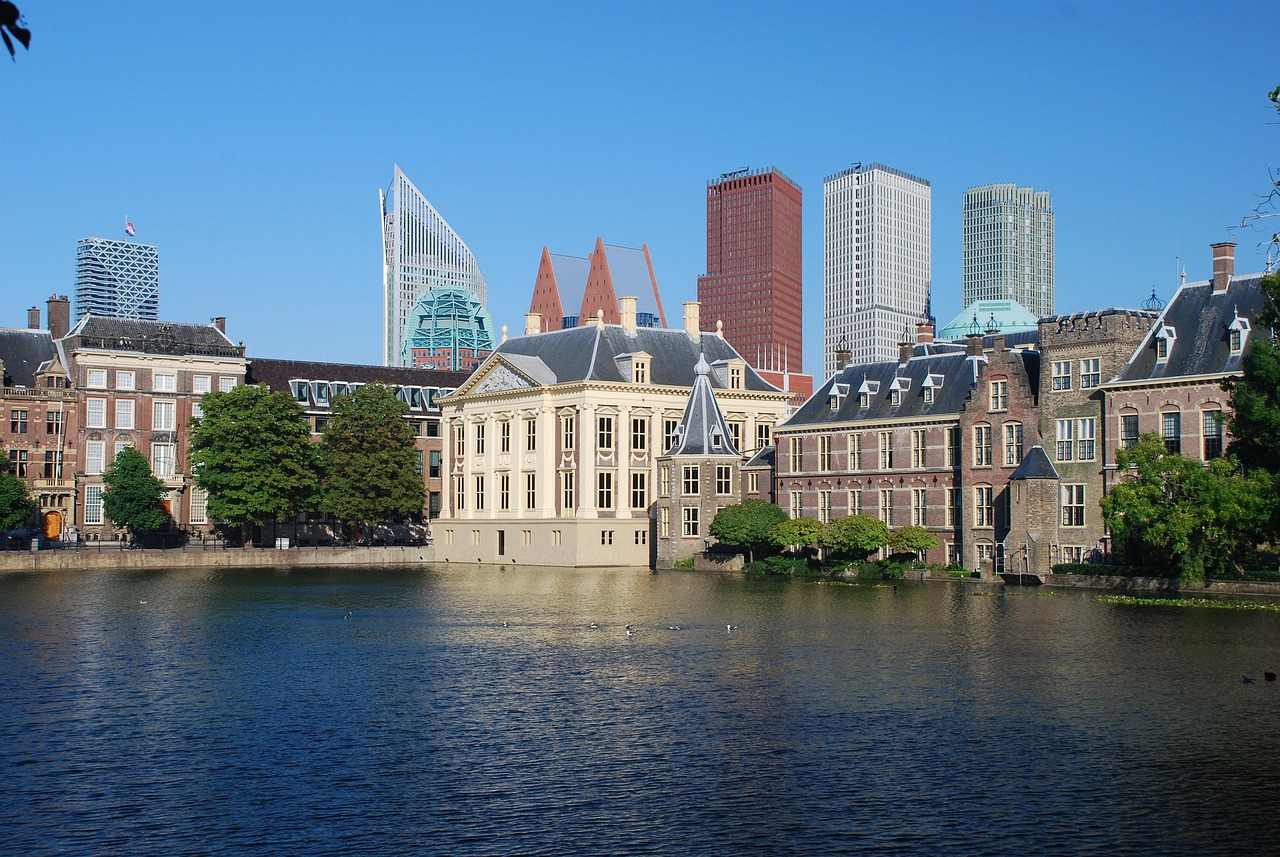
Introduction
Before letting them practise law in Canada, the National Committee on Accreditation (NCA) assesses legal advisors’ international certificates. According to the NCA, law degrees earned in India will be seen as being on par with those earned in the UK and Australia.
Vern Krishna, the NCA’s active leader chief, had said, “The National Committee on Accreditation (NCA) has concluded that three-year full-time regulatory degrees from common law countries like India, England, and Australia ought to be treated equally regardless of where they were achieved.” “There is a notable decrease in the crossing of barriers to the legal profession.”
Along with law degrees from India, Australia, and England, the NCA also treats equally law degrees from Bangladesh, Hong Kong, Ireland, New Zealand, Nigeria, Pakistan, Singapore, the United States, Wales, and the West Indies. Despite the fact that a significant barrier to entry for Indian legal professionals wishing to work in Canada has been removed, all foreign-trained attorneys still need to pass bar exams in addition to qualifying exams on six other themes in order to be qualified to practice.
The federal and provincial governments are actively working to create a national framework for international credential recognition in order to hasten the process of credential evaluation and job market integration for newcomers.
Who is a permanent resident of Canada?
A Canadian PR is a person who has received PR status from the Canadian government. You will be able to live legally in Canada if you hold PR status. You won’t, though, have Canadian citizenship. The following benefits come with a Canadian PR:
- They are entitled to free medical care.
- They can get a high school, college, or university certificate.
- They are eligible for OSAP’s financial aid programme for Canadian residents who are enrolled in postsecondary education.
- They are protected by the Charter of Rights and Freedoms and Canadian law.
A PR from Canada cannot:
- hold certain jobs that require a high level of security clearance;
- Vote for a politician or political party;
- Consider running for office;
- Stay in Canada if you have been convicted of a crime and told to leave the country.
- You can only spend a certain amount of time outside of Canada.
- You must reside in Canada for at least 730 days, or two years every five years, to maintain your PR status.
Advantages of settling in Canada permanently
A PR from Canada can:
- Are free to live and work anywhere in the nation without restriction and are not required to work exclusively for one employer in a certain province or region.
- They are welcome to bring their families; they can easily migrate to another province. They will be able to work, study, and reside in Canada.
- Eligibility for Social Assistance: If a person is a permanent resident of Canada, they may be eligible for a range of social security benefits, including pension payments, if they have 40 work credit points.
- Can apply for citizenship after three years of residence during the previous five years.
Application materials for a PR visa
You’ll need to compile papers based on the qualities for which you’re making claims, as well as additional supporting evidence, including:
- Education Transcripts
- Letters of Employment Experience
- Identity Verification; Report from the WES (Qualifying);
- IELTS “Valid Passport” scorecard
- Medical certificates and a police clearance certificate are required.
How to Apply for Permanent Residence in Canada
- Finish the ECA, which evaluates your educational credentials;
- achieve the necessary IELTS score;
- Create an Express Entry profile and submit your application using the online pool.
- Create an optional Job Bank account;
- Complete an optional application for the Provincial Nomination Program;
- Obtain your invitation to apply (ITA); If required, background checks for both criminal and medical history will be performed.
- Citizenship and Immigration Canada (CIC) will validate your permanent resident status.
- Lastly, have your passport stamped with your visa.
Important immigration initiatives that enable Indian attorneys to qualify for a PR visa for Canada
You must submit your credentials for review to the NCA (National Committee on Accreditation) if you earned your legal education from a foreign university. Following the evaluation, you will be required to take the NCA exam. After fulfilling the NCA requirements, you can request a Certificate of Qualification, which can be used to start the bar admissions process.
Indian lawyers must submit a profile to the National Accreditation Committee and have the Federal Law Society examine their credentials (FLSC). The same applicants are required to pay the required CAD 410 cost and ask their alma mater to provide their transcripts to the FLSC. NCA may take up to ten tests before submitting an application for a Certificate of Qualification (COQ).
The individual can submit an application for a Certificate of Qualification (COQ) and register with the bar of their choice after passing the NCA challenge exam or finishing the LLM program. The applicant must first register with a bar before submitting an application for an internship position. The legal profession cannot provide internship positions without the bar’s approval. The bar mandates that a standard agreement between the cabinet and the article must be confirmed in order for it to be considered legal.
After finishing the term, candidates must submit their certificate of experience to the Bar before they can register for the bar exam, which is offered three times a year.
The following are the main immigration programmes for Indian lawyers that allow applicants to apply for a Canadian PR visa:
Program for Express Entry
One of the most important ways that Canada welcomes immigrants is through Express Entry. The 2015 fast-track immigration option can provide you permanent residence in Canada, possibly in as little as eight months. Express Entry attempts to expedite and simplify the immigration process for applicants. Express Entry is a mechanism that Citizenship and Immigration Canada (CIC) uses to choose applicants for Canada immigration from India through the following programmes, despite the fact that it is not an immigration programme in and of itself:
- The Canadian Experience Class
- The Federal Skilled Worker Program (Federal Skilled Worker Program)
- The Federal Skilled Trades Program (Federal Skilled Trades Program)
A candidate for Express Entry must provide the following paperwork:
- The outcomes of the IELTS English test (discussed below)
- A report from the Educational Credential Assessment (ECA) attesting to their equality in educational attainment
Step 1: Create and complete an online Express Entry profile.
Candidates write in their profiles how they want to move to Canada and live there permanently.
The profile will comprise the applicant’s qualifications, professional background, educational background, language abilities, and other private data. Those who satisfy the requirements of one of the programmes mentioned above will be ranked using the Comprehensive Ranking System. Candidates must register with Canada’s national job bank if they do not already have a job offer or a provincial nomination. Giving false or inaccurate information may prevent an applicant from re-entering the Express Entry pool for a while, so the information provided in the profile must be accurate.
Step 2: Invitation to Submit an Application for Canadian Permanent Residence (ITA)
The people in the Express Entry pool will be accessible to Citizenship and Immigration Canada and employers across Canada. The most qualified candidates, as well as those who have been offered jobs or have won provincial nominations, will be urged to submit applications for permanent residence. A candidate must submit their documentation within 60 days of getting an invitation letter. After the processing period is through, the successful candidates, their spouses, and/or dependent children will be given permanent residency in Canada.
Candidates may resubmit their profile and reapply if they still meet the qualifications after 12 months if they do not receive an invitation to apply.
Program for Federally Skilled Workers (FSWP)
If you are an Indian lawyer seeking permanent residency in Canada, the Federal Skilled Worker Program (FSWP) is your best choice. A score of 67 out of 100 on the CRS points calculator is needed to enter the country through the FSWP, a point-based immigration method. The factors that determine how many points are awarded include age, education, work experience, language skills, adaptability, spousal sponsorship, and a genuine employment offer from Canada.
Your eligibility for Canada will be determined by six key factors: PR
- Age: You will receive a maximum of 12 out of a possible 12 points if you are between the ages of 18 and 35.
- Education: You can get up to 25 points with a doctoral degree. The higher your degree, the more points you receive for the education component.
- Job Experience: You can receive up to 15 points for it if you have six or more years of specialised work experience.
- Language Proficiency: By performing well on your language test, you can earn up to 28 points for the language proficiency criterion.
- Flexibility: You can earn an additional 10 points if a sibling or other member of your immediate family resides in Canada.
- Education and Employment: Both your own and your spouse’s or common-law partners’ prior educational and professional experiences in Canada are taken into consideration.
- Work Offer: The LMIA will provide you with an additional 10 points if you have a job offer that has been accepted in Canada.
You also need to fulfil the following FSWP prerequisites:
- A minimum of one year’s worth of verified, non-overlapping, full-time, paid work during the previous 10 years; this is referred to as NOC skill category 0, A, or B.
- Achieve a minimum Canadian Language Benchmark score of 7 (CLB).
- possess a minimum degree, certificate, or diploma from a post-secondary institution that is backed by the Education Credential Assessment (ECA).
- Documentation proving you have the financial resources to support yourself and your family while you’re in Canada
Programs for Provincial Nominees (PNP)
Canada’s Provincial Nominee Programs (PNPs) were established to assist the provinces and territories in addressing the labour shortage. By offering numerous channels for PR around the nation, 11 of Canada’s 13 provinces and territories address issues at the grassroots level.
The most well-known ones include:
- British Columbia’s Express Entry British Columbia
- Alberta’s Alberta Express Entry Stream
- Newfoundland and Labrador: Express Entry Skilled Worker, Skilled Worker Category
- Manitoba: Express Entry Skilled Worker Stream; Skilled Worker Overseas Stream
- Express Entry Labour Market Stream in New Brunswick; Skilled Worker with Employer Support
- Nova Scotia: Express Entry, Skilled Worker Stream;
- Nova Scotia is in high demand; Nova Scotia has extensive experience.
- Northwest Territories: Skilled Worker Employer-Driven Program
- Employer Job Offer Category, Human Capital Category – Ontario
- Yukon Express Entry (YEE), skilled worker
- Prince Edward Island PNP Express Entry
- Saskatchewan International Skilled Worker Category
Being a lawyer in Canada
A fantastic place to practise law is Canada. Lawyers from India will find the material presented above helpful in acquiring PR in Canada. However, there are very different requirements to become a lawyer in Canada.
You must first join the Law Society of Canadian Provinces and Territories in order to practise law in Canada.
Minimum IELTS Score Requirements
To prove your proficiency in English, you should take the IELTS General Training exam, which is the test of choice for immigration to Canada.
One of the following three routes must be taken in order to become a permanent resident of Canada:
- Class on the Canadian Experience;
- Federal Skilled Trades Program;
- Federal Skilled Worker Program (Federal Skilled Worker Program)
Make sure your IELTS exam scores are still valid for the whole six months that the IRCC will take to process your application.
Permanent residency through Express Entry requires a CLB 7 language proficiency level, or a minimum of 6.0 on each of the IELTS test’s four components.
Each programme has different language proficiency requirements. Your language abilities will be assessed in four subcategories: speaking, reading, writing, and listening. How many points you receive is based on your CLB level (Canadian Language Benchmark).
IELTS scores and CLB levels
| CLB Level | Points per subcategory | Listening | Reading | Speaking | Writing |
| 7 | 4 | 6.0-7.0 | 6.0 | 6.0 | 6.0 |
| 8 | 5 | 7.5 | 6.5 | 6.5 | 6.5 |
| 9 | 6 | 8.0 | 7.0 | 7.0 | 7.0 |
| 10 and above | 6 | 8.5-9.0 | 8.0-9.0 | 7.5-9.0 | 7.5-9.0 |
If you fulfil the requirements for each part, you will score a total of 4 points if English is your second language.
| CLB Level | Total Points | Listening | Reading | Speaking | Writing |
| 5 and above | 4 | 5.0-9.0 | 4.0-9.0 | 5.0-9.0 | 4.0-9.0 |
Program for Federal Skilled Trades
Below is a list of the minimum per-section score requirements for each CLB level.
| CLB Level | Listening | Reading | Speaking | Writing |
| 4 | 4.5 | 3.5 | 4.0 | 4.0 |
| 5 | 5.0 | 4.0 | 5.0 | 5.0 |
| 6 | 5.5 | 5.0 | 5.5 | 5.5 |
| 7 | 6.0 | 6.0 | 6.0 | 6.0 |
| 8 | 7.5 | 6.5 | 6.5 | 6.5 |
| 9 | 8.0 | 7.0 | 7.0 | 7.0 |
| 10 and above | 8.5-9.0 | 8.0-9.0 | 7.5-9.0 | 7.5-9.0 |
Class with Canadian Experience
For NOC A positions, CLB 7 is the bare minimum language requirement. NOC-B posts require CLB 5 as a prerequisite.
The following table lists the CLB levels that correspond to individual IELTS scores.
| NOC | CLB Level | Listening | Reading | Speaking | Writing |
| A | 10 and above | 8.5-9.0 | 8.0-9.0 | 7.5-9.0 | 7.5-9.0 |
| A | 9 | 8.0 | 7.0 | 7.0 | 7.0 |
| A | 8 | 7.5 | 6.5 | 6.5 | 6.5 |
| A | 7 | 6.0 | 6.0 | 6.0 | 6.0 |
| B | 6 | 5.5 | 5.0 | 5.5 | 5.5 |
| B | 5 | 5.0 | 4.0 | 5.0 | 5.0 |
Along with your language skills, your educational background, age, and work experience will also be taken into consideration. Approximately 439 points are needed to qualify for permanent residency through the Canada Express Entry programme.


